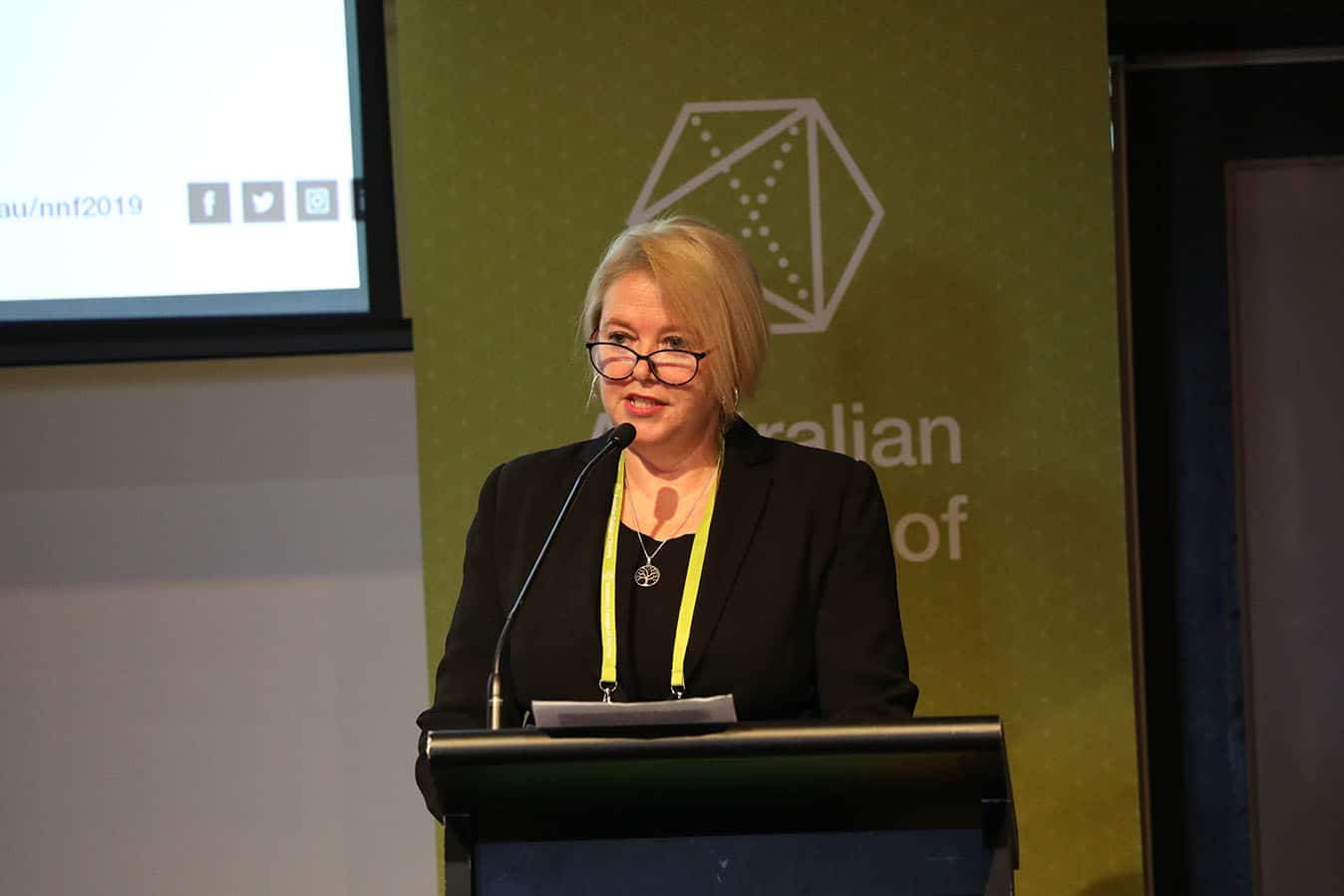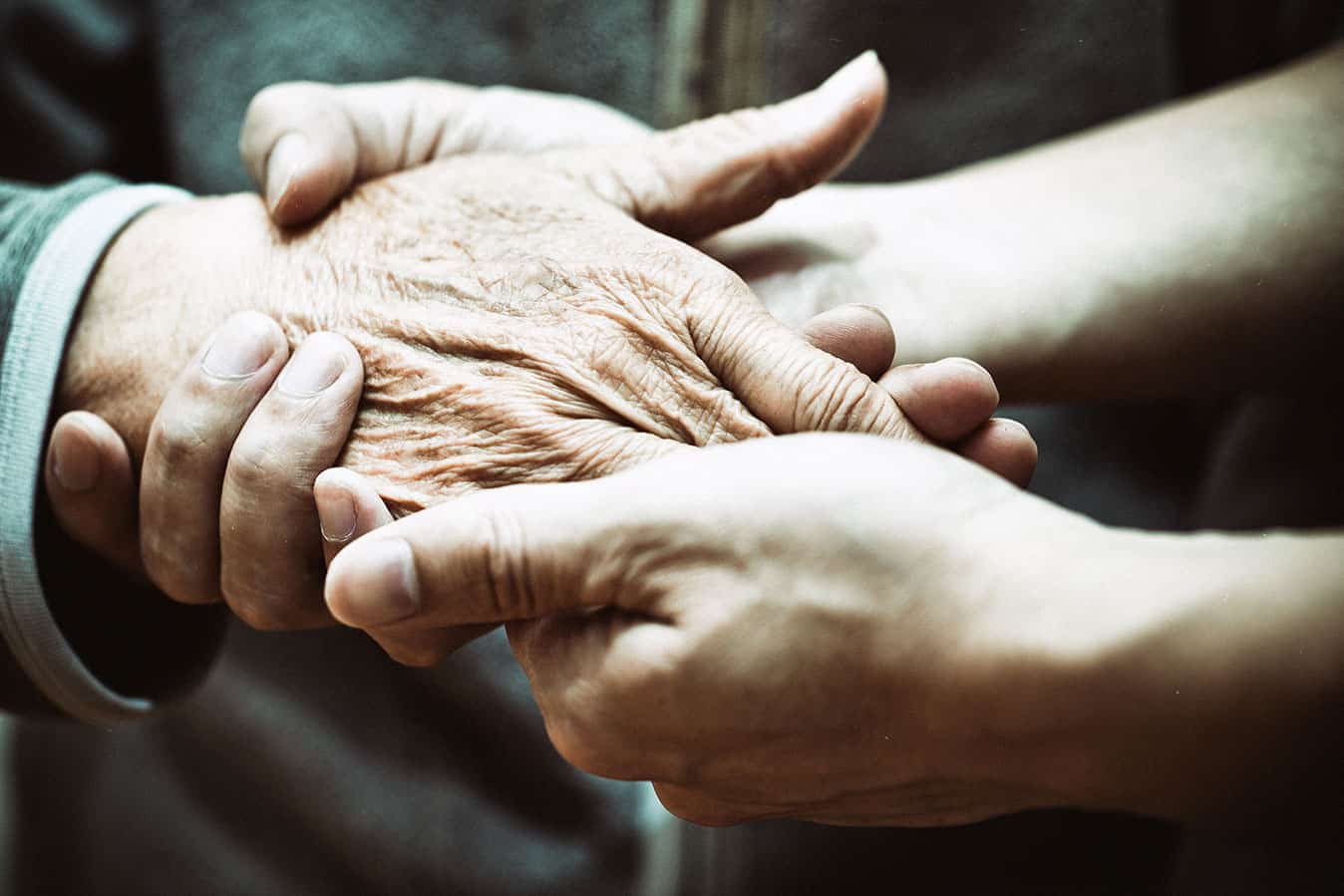Beaten, broken and exhausted are the words Gay Taylor used to describe how she felt after 12 months working as an aged care facility manager.
The pressure to provide quality care to aged care residents without adequate staffing was relentless, Ms Taylor revealed to about 600 delegates in a passionate and emotive presentation at the Australian College of Nursing’s 2019 National Nursing Forum in Hobart last week.
“Every day my intention was to go in and give my all to the frail people in my care and do my best for the mostly dedicated people doing this job,” she said.
“Rush, rush, rush, always rushing, there wasn’t enough of us to do the work. I could not meet the demands set because they were unreasonable demands. They could only be met by exploiting or playing on the fears of the staff.”
Ms Taylor spent five years working in residential aged care (RAC), including the final year as manager of a small aged care home.
She previously trained aged care workers at TAFE for 15 years and now describes the current staffing conditions in aged care as a disgrace.
“Just because a carer can shower 20 residents before 10am doesn’t mean they should; or that rushing is the way we do things around here.”
Ms Taylor labelled the aged care industry was “big business”.
A 2017 financial report of the sector estimated the aged care sector raised $17.4 billion in revenue, equivalent to 1% of GDP.
“It’s a profitable sector. I think we can spend a little more on staffing.”
The impact of short staffing in RAC had significant quality of care issues, including an increase in pressure injuries, the use chemical restraints and even deaths, Ms Taylor said.

Photo Credit: Howl Visual Media
She supports the ANMF’s ratios for staffing in aged care national campaign, which calls for a skills mix of 30% RN; 20% EN; and 50% PCA or care worker and an increase in the number of care hours from 2.5 hours for each resident per day to 4.3 hours.
“These are minimum requirements for skill mix. People coming into residential aged care are older, sicker and with higher needs that require specialised nursing care.
“With more people on the floor, there are more eyes on the residents and a quicker response to incidents.”
Subsequent reforms to aged care from 1982, including in 1987 to hostel and high care, which no longer required an RN to be on duty but at the discretion of the provider, had diluted skill mix Ms Taylor argued.
“The situation is that 70% of all personal care delivered by who may or may not have qualifications. Essentially nursing care is being delivered at a fraction of the cost without nursing training. RNs are overseeing the care from afar and responsible for the care and delegation of a large number of residents.”
The abuse reported at Oakden, the South Australian government run aged care facility caring for those with dementia that was closed down in 2017, occurred despite the facility having achieved accreditation.
Accreditation standards and funding were tied to bureaucratic documentation that did not reflect nursing care assessment and provision, Ms Taylor argued.
“The RN has moved from the bedside to scribe and delegator. What’s on paper is more real than what’s happening to the resident.”









2 Responses
Beaten broken and exhausted are words I wholeheartedly agree with after my role as an aged care manager as well… still recovering from a complete breakdown after my experience with the business side of my facility forgetting that fact that actual people who care had been involved and traumatized, while they carried on saving face in a media storm that slaughtered the genuine caring people who worked at the facility… the residents will not receive the care they deserve while the management continues to see dollar signs… those residents are our family too, we try and try to do our very best under an ongoing amount of pressure to do more, use less time… it’s not workable, it’s not right.
As a student on first placement, we were all horrified by the abuse that went on. Our teachers were also aware that this was industry standard. Nobody should be forced to wake up and showered with water that wasn’t even warm yet, carried without a proper hoist, force fed and have their meds left on a table. Staff were screamed at by families and management if they didn’t get all of their work done despite working at lighting speed, every one was unhappy. Patients had bedsores, food was unpalatable, dentures went missing, dementia patients became abusive and disturbed. How has no one enforced proper ratios, I would not want my taxes going into a corrupt and broken system.